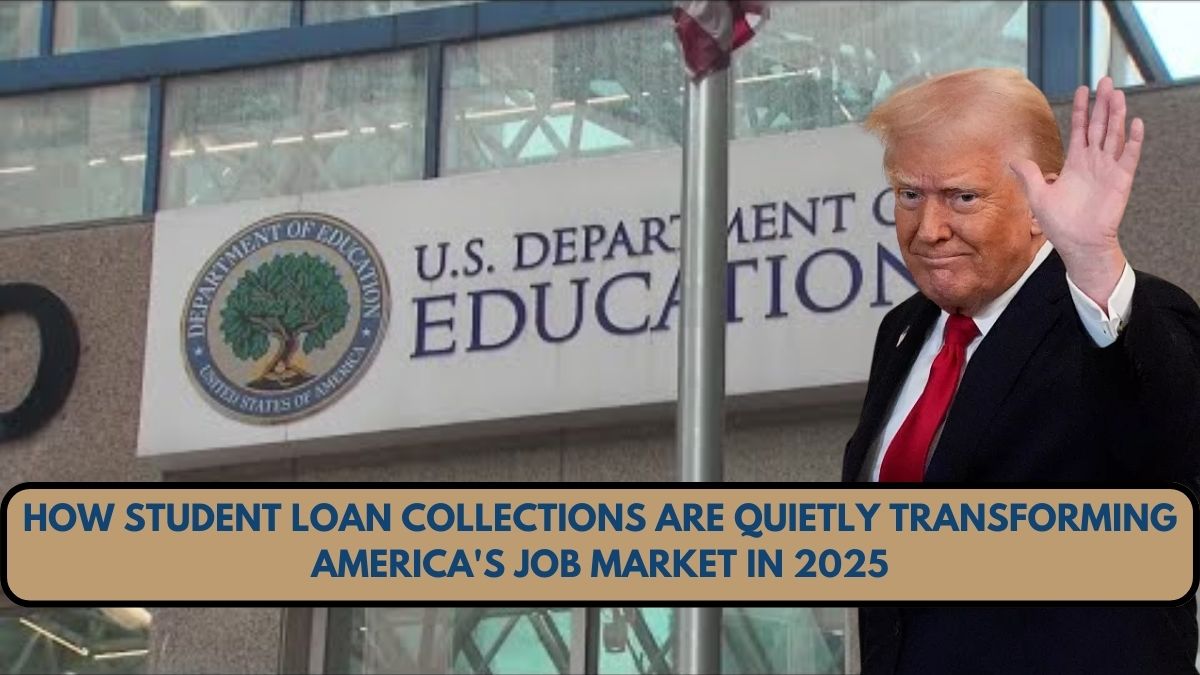As the U.S. Department of Education prepares to resume collections on defaulted federal student loans starting May 5, 2025, more than 5 million borrowers are expected to feel the financial pinch. But the impact isn’t confined to personal budgets — it’s transforming American workplaces in ways that both employees and employers are just beginning to understand.
The End of the Pause — What It Means
During the COVID-19 pandemic, federal student loan collections were halted under emergency relief efforts. Now, that protection is ending. Borrowers in default will again face consequences such as wage garnishment, tax refund withholding, and reduced Social Security benefits, reinstated under the Treasury Offset Program.
The Department of Education offers two main avenues to escape default:
- Loan Consolidation, which combines existing loans into one and removes them from default status.
- Loan Rehabilitation, which requires nine on-time payments within ten months to restore the loan’s good standing.

Workplace Ripple Effects Begin to Show
1. Higher Employee Turnover
With debt weighing heavily on their minds, many employees are searching for better-paying jobs or ones that offer debt relief benefits. A report by the ADP Research Institute found that 58% of workers with student loans are actively job hunting, compared to just 50% of those without loans. The more debt an individual has, the more likely they are to leave their current position.
This increase in job-hopping presents a new challenge for employers struggling to maintain a stable workforce. ADP’s full report details how loan burdens directly influence workplace mobility.
2. Falling Productivity Due to Financial Stress
Financial stress has a profound impact on productivity. According to a 2023 PwC survey, over 56% of financially stressed employees spend three or more hours per week dealing with money worries at work.
These concerns don’t just impact focus — they’re tied to rising anxiety and depression levels, further straining productivity and morale. Western Governors University Labs outlines how stress from student debt spills over into everyday work behavior.
3. Changing Job Acceptance Criteria
Student loan debt is now a deciding factor when job seekers evaluate offers. A study by MissionSquare Research Institute revealed that 62% of private sector and 56% of public sector employees consider student loan policies when choosing a new role.
This means benefits packages offering debt repayment support can sway talented candidates, especially younger workers. Full findings are available on MissionSquare’s website.
Employers Respond with Innovative Benefits
Recognizing the growing burden on workers, some forward-thinking employers are offering student loan repayment assistance. Corporations like PwC and Fidelity Investments now provide direct payments toward employee loan balances, a move aimed at boosting morale, retention, and recruiting appeal.
These programs, though not yet widespread, are gaining popularity as financial well-being becomes a critical component of workplace culture. The Consumer Financial Protection Bureau (CFPB) has published guidelines on how employers can implement such benefits responsibly.

Looking Ahead: Challenges and Opportunities
The return of student loan collections could cause widespread financial strain, but it also presents an opportunity for companies to rethink their benefit strategies. Employers that take proactive steps — like offering loan assistance, financial literacy resources, and mental health support — may emerge as top choices for a new generation of job seekers.
Moreover, with federal policy changes under ongoing debate, including potential reforms to the Public Service Loan Forgiveness (PSLF) program and new income-driven repayment plans, staying updated on federal relief options is vital. For the latest policy developments, visit the U.S. Department of Education or StudentAid.gov.
Final Thoughts
As collections resume, the reality of student debt is more than just a personal concern — it’s a workplace issue. With millions at risk of wage garnishment and financial stress, organizations must acknowledge how loan debt affects productivity, retention, and recruitment. The smartest employers will not only respond — they will lead.
This article has been carefully fact-checked by our editorial team to ensure accuracy and eliminate any misleading information. We are committed to maintaining the highest standards of integrity in our content.

Deepak Grover is a dedicated content writer at OTE News, specializing in government affairs, public policy, and current events. With a keen eye for detail and a passion for factual reporting, he ensures readers receive accurate and insightful news. Deepak holds a degree in Political Science and has experience in research-driven journalism.
When not writing, he enjoys reading historical books, exploring hiking trails, and staying updated with global political trends. His commitment to ethical journalism makes him a trusted voice at OTE News.




